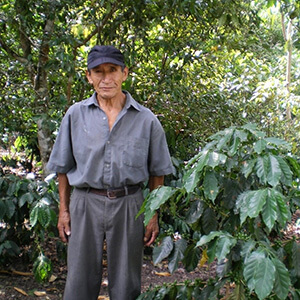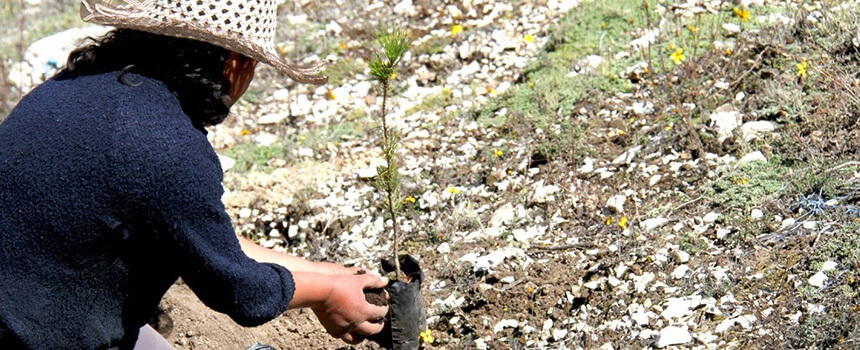 Smallholders turn into protectors of the rain forest
Smallholders turn into protectors of the rain forest
Environmental protection and improvement of living conditions in Peru
Do you know the home of Paddington Bear? The land of deep gorges? Where they have a variety of cuisines that also include Guinea pigs? The answer: Peru! Paddington Bear was created after the Peruvian Spectacled Bea, who can be found in the Chanchamayo valley. The Peruvian Spectacled Bear, or Andean Bear, is the only bear that lives in South America. Earlier this year, Peru mostly made the headlines because of the severe flooding, land and mudslides caused by the weather phenomenon ‘El Niño’. Scientists say that such phenomena will become more frequent as a result of climate change. De-forestation further increases the risk of flooding and landslides.
Necessity
Saplings for re-foresting and preserving of biodiversity in the Chanchamayo valley in Peru.
Activity
A local NGO trains smallholders in environmentally friendly cultivation methods and agroforestry, and replants forests.
Countable effort
Number of tree seedlings that can be brought for re-forestation.
Result
The smallholder families take an active part in environmental protection and improve their living conditions by way of diversified agroforestry.
Systemic effect
Better living conditions for smallholder families, contributing to climate protection in the long term.
Background
The landscape in the Chanchamayo valley has also been severely affected by the loss of woodlands due to de-forestation. 80 per cent of the rain forest has disappeared in the area and with it many different species of plants and animals.
The decline in rain forest can mostly be attributed to slash-and-burn practices: Farmers clear forest at regular intervals to create fertile farmland in order to feed their families. Slash-and-burn is often the only method for creating agricultural land that the locals know about.
The good deed
Smallholder families will be instructed in environmentally friendly farming methods that do not require the clearing of forests. They are trained in agro-forestry of coffee and other produce, while their fields and cleared forests are re-forested with saplings from endemic tree species. This fosters local biodiversity and mitigates the effects of climate change. The effective and diversified cultivation methods contribute to increasing the family income and giving them a balanced diet.

AboutPeru
Lima
Capital
31 773 800
Number of inhabitants
6 199
Gross domestic product per capita per year
87
Human Development Index
Peru belongs to the countries that have the world’s largest area of tropical rain forest.
About the organization and further information
Association
Rhein-Donau-Stiftung e.V.
DZI Seal-of-Approval Transparency International




